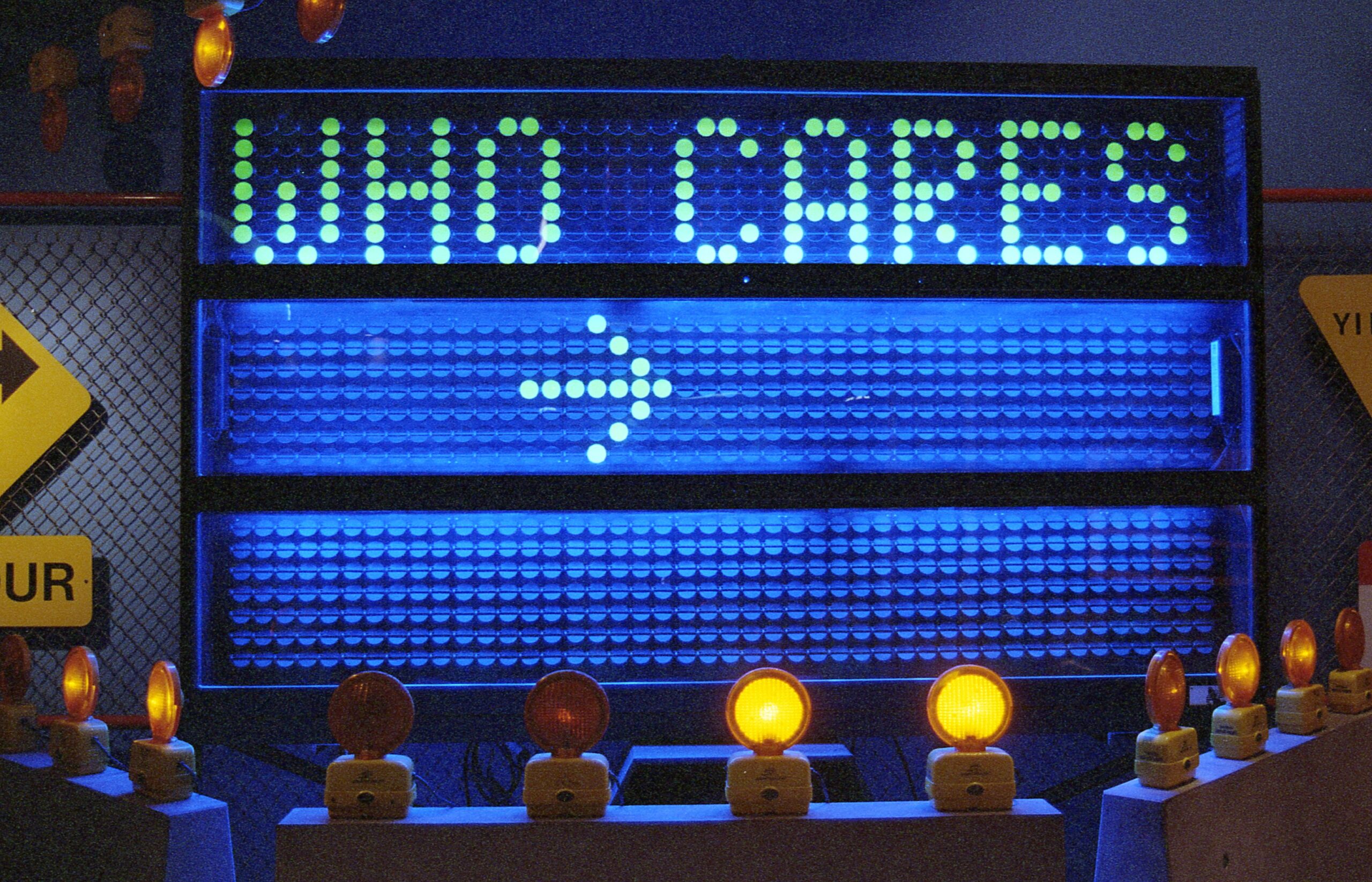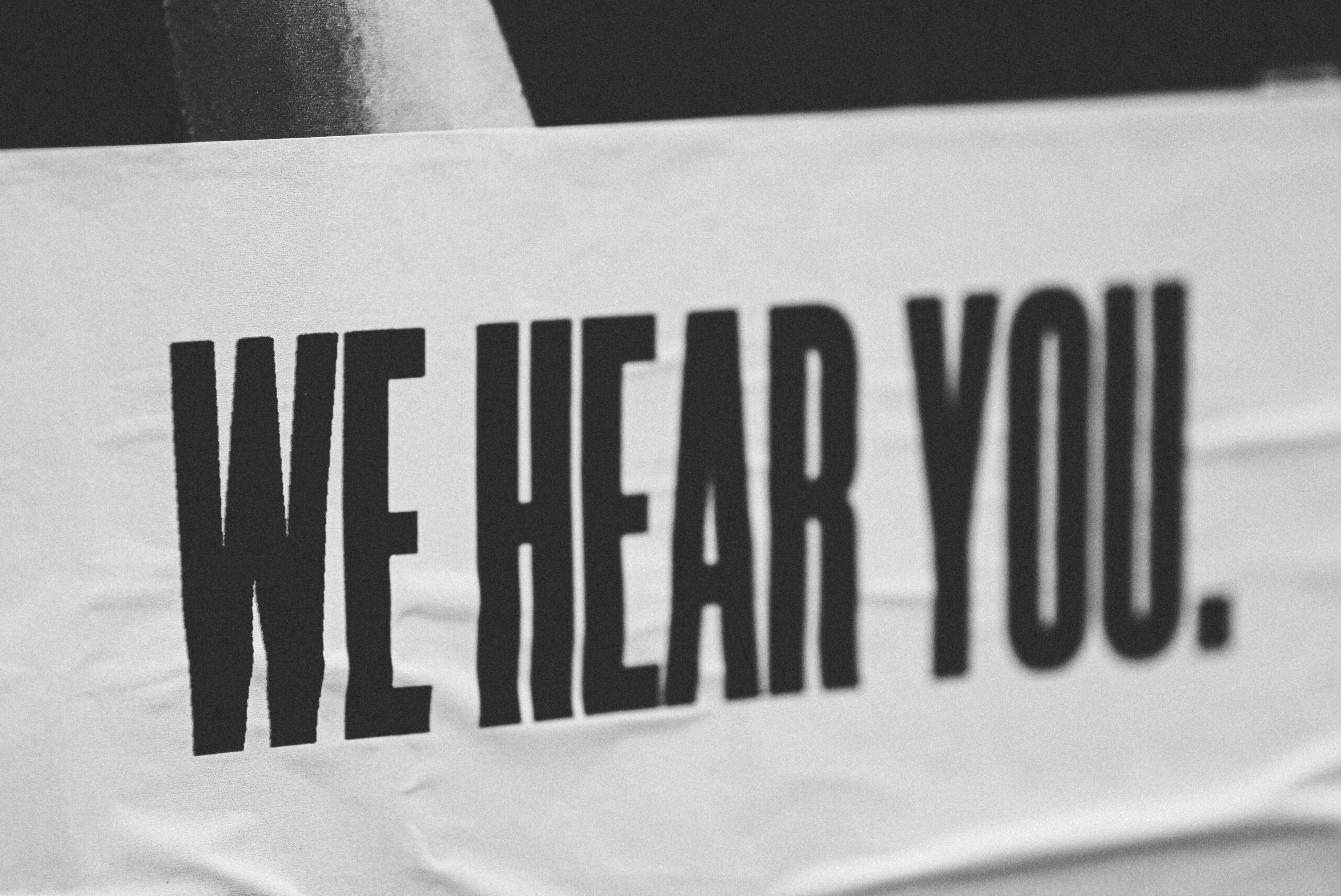
Career Coaching, Leadership, Relationships
Simple strategies to make a recruiter your best friend
This week I attended an incredible talk from recruiter Cheryl Bedard, who shared her thoughts on engaging properly with recruiters. One of the things that struck me as particularly important is we often only think about contacting a recruiter when we are in-between jobs or thinking of making a move. This is a very shortsighted strategy – active management of your career includes cultivating your connections with recruiters over time, along with the rest of your network, so that you have the support you need when you need it. In addition to this top tip, here are some other thoughts on how to make a recruiter your best friend: Be approachable and respond to emails and calls This one struck me as a surprise, as doesn’t everyone have a current email on their LinkedIn account? Evidently not. Make sure your profile is current and correct and use an email that you actually monitor and will respond to. If you’re actively looking for a job, answer the phone. This one may take a bit of a mind shift change as we’re programmed these days to let everything go straight to voicemail. But if I’m a busy recruiter, instead of leaving a message, I may just hang up and call the next candidate on my list. And Cheryl pointed out a very interesting piece of info – that coveted call from the recruiter might be tagged as spam on your phone. The only way to know for sure is to take the call and see. You can always hang up if it’s spam. Lastly, listen to your voicemails and make sure your mailbox is not full, with an aim to return messages within 24 hours. You should call them back and not text and definitely leave a voicemail if they don’t answer. Know what you want and why I often speak about this ad nauseam with career coaching clients. If there are 5 similar resumes, why would the company pick you? You need to have an answer to this question. And just in case you were wondering, “I’m willing to do anything” is not a good response. Cheryl’s perspective echoed mine, that the talent market does not respond well to generalists. You need to be a specialist in something, clearly understand the value you bring and be able to articulate it confidently. To that point there are 5 ways to speak to value – increased revenue, increased profitability, decreased cost, avoided cost, saved time. Think about the question – “What do you do to make your bosses life easier?” if you’re struggling to come up with an answer to this one. And even if during the interview process they don’t ask the question, “Why should we hire you?” you need to close with this as part of your summary and make sure they know why they should hire you. Share, Share and Share A brilliant way to cultivate relationships with recruiters is to be a source of information for them and share
November 11, 2023
|
4.1 min read

Career Coaching, Leadership, Life Direction and Purpose
You Need to Answer this Career Question Confidently
“So we have a new Chief Revenue Officer, and he set up a meeting to get to know me and share some ideas for where he sees the direction of Marketing. And then he asked me a question – and I’m not sure if I answered it right.” “What was the question?” “He asked me where do I see my career going. And I didn’t know what to say and I told him I’m happy with where I’m at.” Heed the career warning of the Cheshire cat I smiled. It reminds me of something the Cheshire cat said in the story of Alice in Wonderland. Alice is wandering through the wilderness and comes to a fork in the road where she meets the Cheshire cat. The cat asks Alice where she’s going and Alice responds that she doesn’t know. To which the cat brilliantly responds – “If you don’t know where you’re going, any road will take you there.” I also smiled because I hear this all the time, especially from women leaders. Like Alice, we often don’t have a good answer to this very important question. We even misconstrue this question. We think it’s a test of loyalty – are they trying to figure out if I’m wanting to leave the organization? Or a test of arrogance – If I say I want their job eventually will they think I’m all high and mighty? Will they get threated by my ambitions? I should just be happy with where I’m at – right? Yes and no. You may be perfectly happy with where you are in the organization now, and yet, it’s important you have a sense for where you want your career to go in the longer term. These aren’t mutually exclusive. Thinking about the trajectory of your career is a both and, not an either or. Being proactive about your career isn’t being pompous “But I don’t want to be CRO. The thought of it scares me.” She went on to say. But here’s the point. The thought of it might scare you now, but what about in 5 years? It’s one thing to do your due diligence on career planning and then say, this is the career path I think will be best for me, and here is a considered reason why based on research and sound analysis. I like being close to the impact, I enjoy the execution and tactics more than the strategy and see myself more in a marketing operations role rather than a CRO role. Fair enough. But more often than not, we exclude things from our path because they seem too big or because of a fear of the unknown. Or we worry about being perceived as overly ambitious and don’t want to rock the boat. Take active management of your career Taking an active role in the management of your career implies just that. I’m thinking about it, I’m working to create goals for the short term, the mid-term, and the
November 3, 2023
|
4.6 min read

Emotional Intelligence, Leadership, Spirituality, Well Being
An antidote for impostor syndrome – but it’s not quite what you think
Impostor syndrome is one of those interesting and universal things – in my opinion we all suffer from it. It shows up in many ways – failure to try new things because we’re afraid we’re going to fail, we don’t speak up in a meeting and so we never get credit for the idea, we don’t ask for the promotion, we don’t ask for help, we avoid asking for feedback or we over defend if we do get it, we overwork something to death because it’s not quite perfect yet, we fail to advocate for ourselves… We all suffer silently and repeat the same patterns I could go on and on. And we’re somewhat aware of the cost of this, as it makes life a lot more painful to live. We KNOW in our heads that we suffer from impostor syndrome. We might read books on it, we’ve taken the online quiz, maybe even our therapist told us. So we look for new techniques on how to solve this problem, we look to apply a new perspective and think carefully about what the morning affirmation needs to say (that is, if we remember to do it.). Maybe we practice meditation hoping and praying it will disappear, or we call our doctor and ask for a prescription for the daily anxiety we’re battling and just can’t seem to shake no matter how successful we are, no matter how many things get ticked off the to do list. Because there’s always more. We practice self-care because that’s the solution, right? A massage, getting the nails done, we tell ourselves that we need to be kinder to ourselves. But deep down we KNOW we don’t deserve it. Our nails look great and inside we’re still a mess. And we go about our business of repeating the same cycles, the same patterns of suffering, because obviously there’s no real fix to this, otherwise somebody would have figured it out by now. Impostor syndrome can’t be solved by the same thinking that creates it There is a fix. The problem is we’re often looking in the wrong place. Impostor syndrome can’t be solved by the same problem that creates it. It’s not a thinking problem. It can’t be solved in the head. It can only be solved in the heart. The heart – an interesting concept for many of us to take in. It’s a place many of us aren’t super familiar with and frankly don’t have much experience with. And yet we all have one. How does this happen and how can this be? Because adulthood often entails learning how not to feel things. Learning how to hide things. Learning how to cope with the difficulties of life, and feelings will just get in the way and get us in trouble. We learn early on as children that feelings are often scary and if we express them, we’ll probably get punished, or worse. We learn how to not take emotions to work because emotional
October 17, 2023
|
5.7 min read

Emotional Intelligence, Leadership
The Scary Side of Success
One of the practices I often have leadership trainees do at the beginning of a session is to check in with how they’re feeling. I use a wheel of feelings that has 70-80 different emotions listed. And you may be wondering why – what would be the point of taking up valuable time to talk about feelings, especially when there is so much content to cover? Just get on with it! We often ignore emotion The problem is just that. We often ignore what we’re feeling, push it down, disregard it and just get on with it. But the feeling still comes with us. And what we don’t acknowledge often comes out sideways. Let’s say the crap hits the fan because of a recurring problem with a customer. A problem that you told them was fixed. Now you’re in a bad mood because you’re going to have to eat crow with your stakeholder and then you find yourself in a difficult conversation with a direct report to address the issue. You get triggered and can’t maintain your cool. Now you’ve alienated your direct report, and the customer is mad, and the problem still isn’t fixed. Doh! Or perhaps the feeling isn’t anger but stress and pressure. I’ll use myself as an example for this one. Over the past few months, I’ve been sicker than I’ve been in ages. It’s been extremely stressful coping with that while trying to keep all the plates in the air spinning, and I’ve been worried about my body’s ability to bounce back – something that has never troubled me in the past. I’ve been carrying so much heaviness in my chest and feeling utterly exhausted. I’ve found myself sighing out loud multiple times a day. And I kept ignoring it because I had too many things to do. Foolishly, I was ignoring my own advice. I looked at the feelings wheel the other day and decided to finally lean into it, rather than push the stress and overwhelm to the side. We push stress aside at our peril I’ve often been told that I’m very good at maintaining a façade. That I appear to have everything under control, I appear super calm on the surface, and I never need to ask for help. But looks can be deceiving. I started writing down a list of all the things that have been stressing me out over the last year – and it ended up being a very long list. A lot of it related to work, some to family, some to friends. And a lot of the work-related things were positive. More clients than I could handle, different types of work, expanded scopes, more interdependencies, expanded projects. But even the good stuff can bring stress. And yet I didn’t allow myself to acknowledge it, because the mindset of a coach should be that this is all so wonderful, and I should be positive all the time. I should see everything as an opportunity and never have
October 6, 2023
|
5.1 min read

Career Coaching, Mindfulness, Motivation, Well Being
Is the Trick in Life Not to Care? Kind of…
We tend to focus a lot on outcomes in our society. Outcomes are how we evaluate success. That project didn’t achieve the stated outcome, so we brand it as a failure. The business is no longer a going concern, so it’s a bust. Maybe we don’t get the promotion we were longing for, or a particular dream job, and we make ourselves miserable thinking about what could have been. What should have been. Focusing solely on outcomes is a recipe for misery I realize this headline may sound ironic coming from a woman who in a former career was responsible for pulling together performance dashboards and kpi updates, but I’ve found it to be true. For many of us it would behoove us to embrace the Buddhist concept of non-attachment. Which isn’t the same as not caring or becoming apathetic. Let me share an example of what I mean by this. I love what I do as a career and leadership coach and facilitator. In many ways I look at it as a vocation, rather than a job. I’m deeply attached to the purpose of enabling and helping others to be effective and to develop clarity of purpose, compassion for self and others and confidence. But my work in this space can feel like heaven, or it can also feel like hell. And a lot of the difference has to do with how attached I am to certain outcomes. Any job can be heaven or hell Take career coaching for instance – there have been occasions when I’ve been sucked into my client’s outcome, that attachment to finding the perfect job or the perfect career (even though I emphatically assert there is no perfect job or career!). I become aware of when that happens because I start noticing a few things. I start worrying more than usual about my client interactions. I worry they’re not getting enough out of the coaching process, or what they would say about me as their coach. I start to worry about my reputation and whether I’ll get a bad review. If it gets extreme, I start judging myself – maybe I should have suggested this or that. I even start questioning my credibility as a coach. And when that happens, I find myself violating my own rules as a coach, because I move from curiosity and inquiry into tell mode. I lose sight of the fact that my role as a coach is to facilitate the process and instead try to drive the outcome. In essence, I get overly attached to the client’s outcome and as a result make myself miserable and drive myself crazy. When I practice non-attachment that same interaction can look and feels very different. The reason it feels so different is because I’m not attached to the outcome, and if I’m not attached to the outcome I can rest fully in the present moment. I’m not worrying about the question I just asked and whether it was good enough. I’m
September 28, 2023
|
4.6 min read

Communication, Leadership
The doing versus the being of listening. There are no shortcuts if you really want to connect with people.
“My boss says all the time now, ‘I hear you,’ when I’m telling them something. But the problem is, do they really? It feels like they’ve been on a leadership course, and this is something that they’re trained to say. Is this the case? Is that what you’re teaching people these days?” I don’t blame her for being upset. When I hear things like this, I want to bang my head against a wall. It’s a perfect example of hearing something in a leadership class, and then applying it on autopilot as a box tick exercise. People aren’t stupid, and they can always smell when someone isn’t being authentic and is just going through the motions. I’ll just say the things they tell me to say. And that will get the result I want. Wrong. Leadership skills aren’t meant to be a crash course in manipulation. And even though I often say leadership is more about who you are being than what you are doing, there are still so many folks who show up to a course looking for a quick tip or trick that will miraculously transform a relationship without putting in the hard work. The doing versus the being of listening Let me explain what I mean by doing and being. Doing – is about developing leadership skills and practising them until they form new habits. It takes persistence, practice, and hard work. These could be skills pertaining to having feedback conversations, listening skills, performance conversations, delegating tasks, coaching, giving presentations, time management. These are some of the skills related to successful leadership and we must practice them, as the more we practice the more leadership competency we build. Practice makes better. Being – is a journey of leadership self-exploration. When we are more self-aware and accessing our Learner Mindset we can manage our well-being, build stronger relationships, innovate, and deliver higher performance levels. Being is about how you are showing up. Are you just going through the motions, or do you really care about your employees, the team, and the work product? If you value things like integrity, is that visible to others in our behaviour? Would others describe you as a person with a high degree of integrity? The question I often ask leaders to explore this aspect of beingness is “Why on earth would anyone follow you?” It’s meant to be provocative, because there is often a disconnect between how we want to be perceived and how our beingness is landing with others. So back to my participant’s question. One of the skills that I often illustrate is acknowledging and validating what you’re hearing another person say. That goes way beyond parroting a phrase like, “I hear you.” Here’s what I said to that participant: “It sounds to me that you’re frustrated. And it makes perfect sense that you would be because I’m hearing that authenticity is important to you. You wonder whether your boss is paying attention, or just parroting something they’ve been told
September 14, 2023
|
4.1 min read
Ask Ms. Mindfulness
Shelley Pernot, otherwise known as the Irreverent Guru of Mindfulness, muses on life, leadership and everything in between. Your one stop shop for career tips, leadership tips and daily inspiration!

It was a privilege to work with Shelley as my leadership coach! The process was structured and yet flexible enough to meet needs as they arose. Shelley helped me to grow, learn more about myself, and to really achieve what I set out to accomplish. We worked on planning, navigating a promotion successfully, and so much more! I experienced many successes as a result of working with Shelley, she has great resources, knowledge, and really helps with setting the foundation to this coaching work. She won’t let you down!
Stacy Campos
Regional Coordinator
Having the opportunity to have Shelley as my Leadership Coach could not have come at a better time in my career. I was recently promoted to CFO and was new to the Senior Management Team. Shelley helped me navigate joining the team as well as helped me to determine who I wanted to be as a leader. The Leadership Circle Profile helped our team to discover our blinds spots and to be able to understand each other better. Working with Shelley not only has affected my professional life in a positive way, but also my personal life. She helped me take leaps and has given me the resources to continue this journey of self-improvement. If you’re looking to find more about yourself and how you can be the best version of yourself, I highly recommend working with Shelley.
Kristen Spedale
CFO
I have been working with Shelley for the past 2 years on my leadership development journey. What I thought would be a straight line, I soon learned with Shelley’s guidance, was a winding path with several ups and downs along the way. Shelley supported me as I took a deep dive into my professional and personal history and learned how it affects my approach and my perceptions. She helped me to slow down and recognize certain behaviors and understand that I can pivot in the moment or try again next time. Ultimately, my work with Shelley turned out to be so much more than what I expected. Her approach to coaching was exactly what I needed.
Nicole Naassan
Senior Vice President, Consulting
I’ve learned more about leadership in the past six months working with Shelley than I have in my 10+ year career. She is an incredible coach with many tools in her toolbox. The guidance and mentorship I’ve received from Shelley has been life-changing. She will challenge your limiting beliefs and inspire new ways of thinking.
Margaret Soltis
Creative Director
I highly recommend Shelley if you need a coach, thought partner, and guide as you consider the next steps in your career. She provides practical tools and advice to help launch your career exploration, but most importantly, she is an expert at helping you cut through the noise of your limiting beliefs. At the end of our time together, I had a much clearer vision of what I wanted in my life and a plan to make it happen. My only regret is that I didn’t find her sooner!
Elizabeth Magnus
My career coaching sessions with Shelley have brought me back to living. It’s been contagious, spreading throughout my personal and professional life. I now have the building blocks I need to continue setting healthy boundaries, the freedom to show up as my authentic self, and an adaption of a growth mindset that has allowed me to make bold decisions and try new things. I’ve discovered that there’s always another way and how to eradicate barriers that lead to tunnel vision. These sessions with Shelley have been a great gift and have given me the momentum I need to continue the journey to be my best self.
Teasha Houston
Art Director
It is amazing to think where I was only 10 months ago when I first started working with Shelley and where I am now. Not only professionally but mentally and emotionally. Shelley helped me navigate out of an unhealthy work environment by challenging me and asking me those tough questions we never seem to ask ourselves. What are the values of a true leader? How do those values align with my own? Shelley challenging me and guiding me through some of those tough questions is what led to my epiphany and me having the courage and confidence to leave an environment that threatened my well-being. She taught me how to become more self-aware and self-compassionate. Reminded me to be kind even when the world would understand if I did otherwise. And the biggest one for me, shutting down that crazy inner voice (we all have it!) and replacing it with being present. Shelley has armed me with tools that I will carry with me for a lifetime. Tools that will help me to continue to grow and learn. Life can be hard but working with someone like Shelley does make it easier. She will help you navigate the good and the bad and you’ll learn so much about yourself in the process.
Michele Feria
Director of Marketing
First of all I would like to say that I would recommend Shelley to anyone needing career guidance. As my counselor Shelley helped me transition my career from bartending to Tech Sales which was a difficult and scary transition for me. From the start Shelley was fantastic. Initially I had no idea of which direction I wanted my career to go, I just knew I wanted it to go somewhere else. Shelley was so kind and patient as she helped me figure this out, and gave me a step by step guide on how to explore my options and make an educated decision. She also helped me assess my skill set which played a large part in directing my energy. I landed a great job within days of my final session with Shelley, and now I’m month 3 I am absolutely loving it and doing very well. It was the perfect job for me and Shelley was the one that got me there. Working with Shelley was one of the best decisions I have ever made, she literally changed my life and I am so much happier for it.
Russell Boxer
Account Executive
